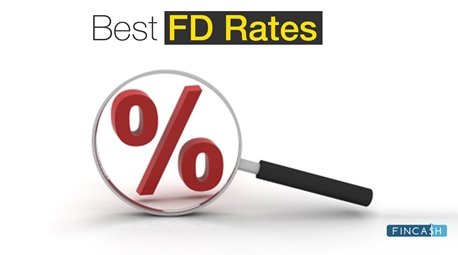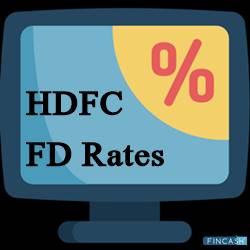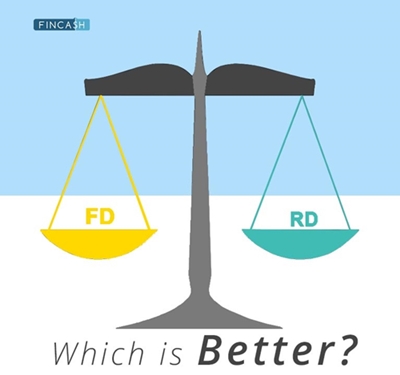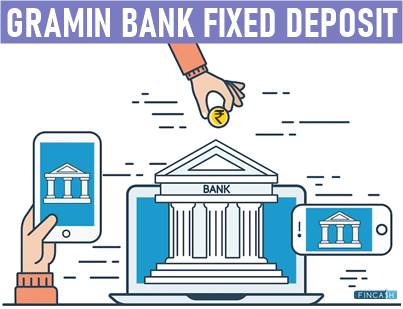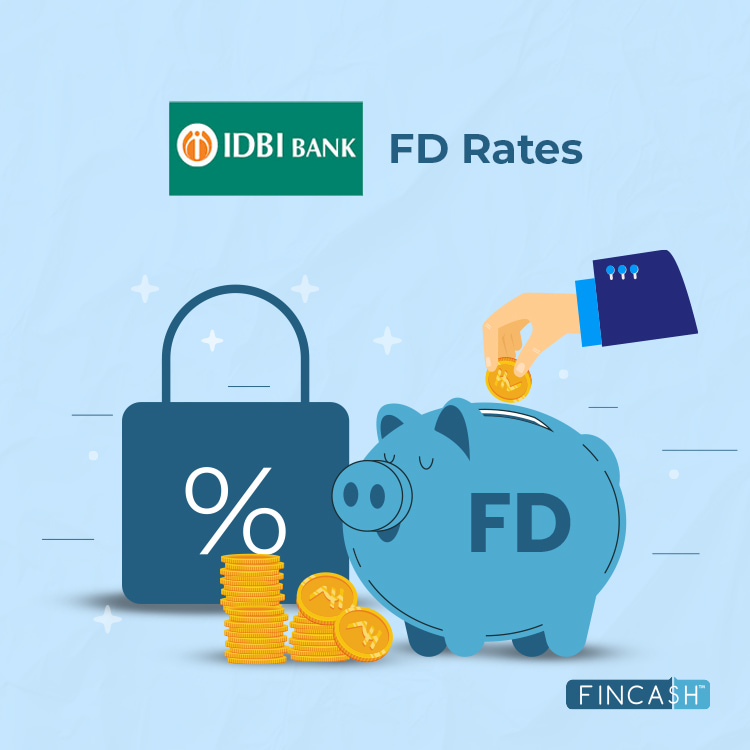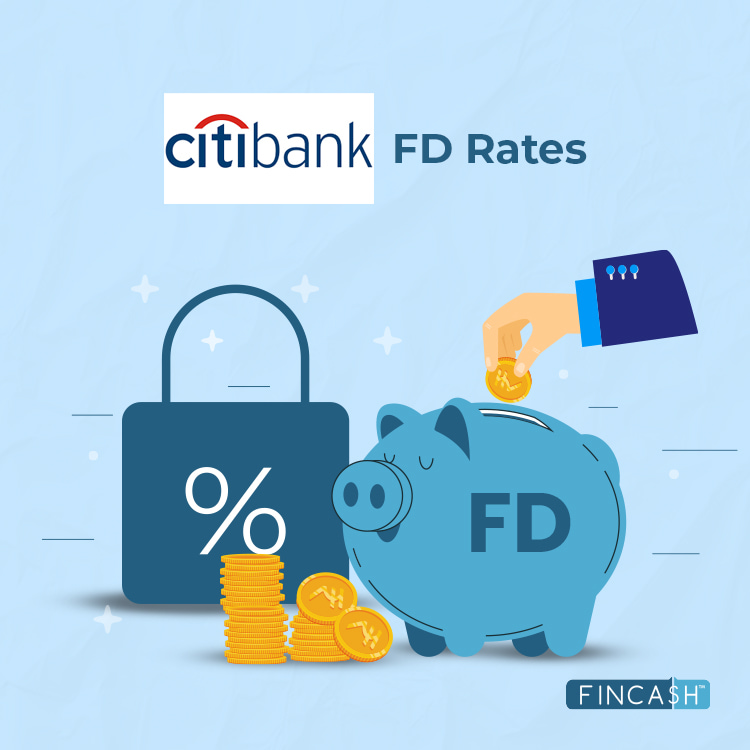Fixed Deposit or FD
Fixed Deposit has always been one of the most common ways of Investing in India. They have always been the first choice for the conservative investor since they carry almost no risk. But, due to the recent demonetization, fixed deposit interest rates have been slashed drastically by most banks. This affects the returns of the investor, forcing him to seek other investment avenues.
What is Fixed Deposit (FD)
Fixed deposit is a type of financial instruments provided by banks for a fixed tenure and offer Fixed Rate of Interest. The FD Interest Rates vary from 4%-8% depending on the tenure of the investment. It is seen that higher the tenure, higher the interest rate and vice versa. Also, if the investor is a senior citizen, the FD interest rate applicable is generally 0.25-0.5% higher than the regular rate.
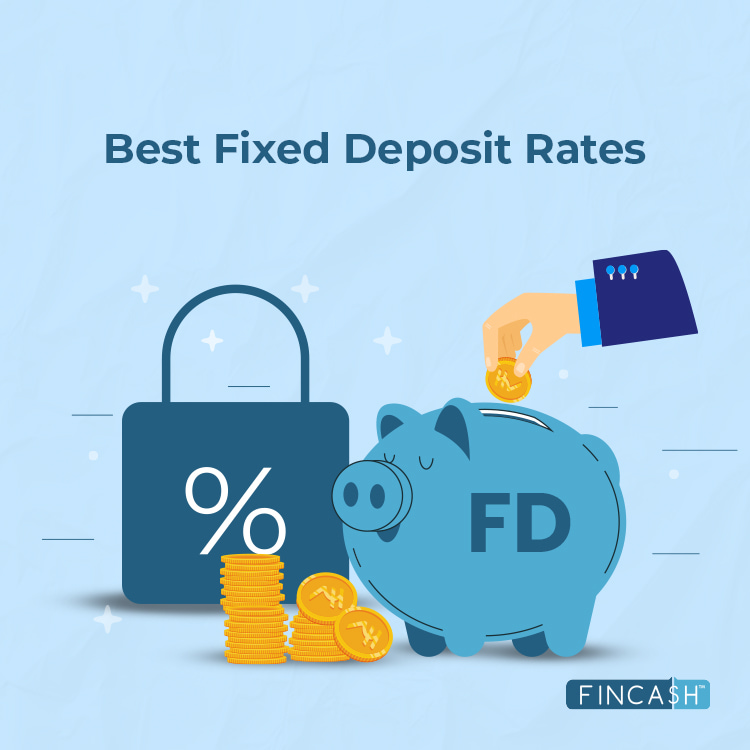
Benefits of Investing in Fixed Deposit or FD
Guaranteed Returns on FD
The biggest advantage of investing in a fixed deposit (FD) scheme is that the returns are guaranteed irrespective of the market condition on the date of maturity. But like any other credit instrument, the credit behind a fixed deposit is of the Bank issuing it. Also, another important point is that each depositor in a bank is insured up to a maximum of INR 1,00,000 (Rupees One Lakh) by the Deposit insurance and credit guarantee corporation (DICGC).
FD Interest Rate is Higher Compared to Savings Account
Fixed deposits offer a rate of interest of around 4-8% p.a. whereas, Savings Account only offer around 4% interest rate per annum. The banks that offer above 4% require the minimum balance to be around INR 1 Lakh and above. Also, if the minimum balance is not maintained in the savings account, the bank can charge maintenance charges for every month the account balance is below the minimum prescribed account. Thus, making fixed deposits a better choice.
Fixed Deposit can be used as Security for Loan
Many banks accept fixed deposits as security against loans. They consider the principal amount and create a charge on the FD. This is a quicker process as compared to keeping Real Estate or other assets as loan security.
Flexibility to Choose Tenure and Returns
Fixed deposit offers the flexibility to choose the tenure of the deposit. You can decide at the time of investment, what should be its duration. The investor can also decide the frequency of his returns. Returns can be received monthly, quarterly or annually.
Talk to our investment specialist
Disadvantages of Fixed Deposit
FD Returns are Taxable
One of the biggest flaws of investing in a Fixed deposit is that the FD interest received is fully taxable. In case the FD interest rate is over INR 10,000, banks are authorised to deduct TDS @ 10% p.a. the total interest is included in the investor’s total income and is then taxed as per the individual slab rate.
Exit Load Applicable on FD
Another major disadvantage of investing in FDs is the exit load. Exit load is a penalty charged when the FD is withdrawn prematurely. The investor ends up losing valuable interest in thus making fixed deposits unfavourable in terms of liquidity.
Not an Inflation Hedge
Inflation hedging instruments are those which provide protection against the decreased value of the currency. Fixed deposit do not act as an inflation hedge, thus, eating into the returns of the investors.
Alternative to Fixed Deposit (FD)
Since the FD interest rates have been drastically slashed, investors should look at other options which give more value for their money.
Commercial Paper (CP)
CPs are issued by large corporations and financial institutions to meet their short-term liabilities. They are usually called promissory notes that are unsecured and are sold at a discounted face value. Their maturity period can be anywhere from 7 days to 1 year.
Treasury Bills (T-Bills)
T-bills are short-term financial instruments issued by the Central Bank of a country. Though the returns aren’t that high, it is one of the safest forms of investments since it carries no market risks. The maturity periods for T-bills could be varying from 3-months,6-months and 1 year.
Certificate of Deposits (CD)
CDs are term deposits that are offered by banks and financial institutions. It is a savings certificate that has a fixed interest rate and a fixed maturity period. The only difference between CDs and fixed deposits are that CDs cannot be withdrawn until their maturity date thus, totally blocking the funds.
Fund Selection Methodology used to find 10 funds
Liquid Funds / Ultra Short Bond Funds
Investors can also invest in Liquid Funds which would offer returns similar to those of fixed deposits and at the same time providing liquidity, withdrawal without penalty. Also, if held for a long period( > 3years) they would attract long-term Capital Gains instead of taxation at a marginal rate making them tax efficient.
Some of the Best Liquid Funds & ultra short bond funds to invest based on Yield to Maturity (YTM) & Effective maturity below 2 years.
Fund NAV Net Assets (Cr) 3 MO (%) 6 MO (%) 1 YR (%) 3 YR (%) 2024 (%) Debt Yield (YTM) Mod. Duration Eff. Maturity DSP Money Manager Fund Growth ₹3,526.8
↑ 0.43 ₹3,547 1.2 2.6 6.4 6.7 6.7 7.36% 5M 12D 7M 13D ICICI Prudential Ultra Short Term Fund Growth ₹28.7974
↑ 0.01 ₹17,808 1.3 2.9 6.8 7.1 7.1 7.31% 5M 5D 6M 11D UTI Ultra Short Term Fund Growth ₹4,395.54
↑ 0.60 ₹3,751 1.3 2.7 6.4 6.8 6.6 7.21% 4M 29D 5M 30D Kotak Savings Fund Growth ₹44.5074
↑ 0.01 ₹16,788 1.3 2.8 6.6 6.9 6.8 7.12% 5M 16D 6M 11D Nippon India Ultra Short Duration Fund Growth ₹4,182.56
↑ 0.42 ₹10,488 1.4 2.9 6.6 6.9 6.8 7.06% 5M 28D 8M 3D Canara Robeco Ultra Short Term Fund Growth ₹3,933.01
↑ 0.95 ₹471 1.2 2.6 6.2 6.5 6.5 7.03% 4M 26D 1Y 3M Invesco India Ultra Short Term Fund Growth ₹2,797.86
↑ 0.55 ₹1,315 1.3 2.8 6.5 6.9 6.8 7% 4M 7D 4M 15D SBI Magnum Ultra Short Duration Fund Growth ₹6,208.79
↑ 1.07 ₹14,032 1.4 2.9 6.7 7.1 7 6.99% 4M 20D 6M 7D BOI AXA Ultra Short Duration Fund Growth ₹3,274.07
↑ 0.64 ₹168 1.2 2.7 6.2 6.4 6.5 6.91% 4M 17D 4M 20D DSP Liquidity Fund Growth ₹3,870.99
↑ 0.57 ₹16,616 1.5 3 6.3 6.9 6.5 6.84% 1M 6D 1M 10D Note: Returns up to 1 year are on absolute basis & more than 1 year are on CAGR basis. as on 24 Feb 26 Research Highlights & Commentary of 10 Funds showcased
Commentary DSP Money Manager Fund ICICI Prudential Ultra Short Term Fund UTI Ultra Short Term Fund Kotak Savings Fund Nippon India Ultra Short Duration Fund Canara Robeco Ultra Short Term Fund Invesco India Ultra Short Term Fund SBI Magnum Ultra Short Duration Fund BOI AXA Ultra Short Duration Fund DSP Liquidity Fund Point 1 Lower mid AUM (₹3,547 Cr). Highest AUM (₹17,808 Cr). Lower mid AUM (₹3,751 Cr). Top quartile AUM (₹16,788 Cr). Upper mid AUM (₹10,488 Cr). Bottom quartile AUM (₹471 Cr). Bottom quartile AUM (₹1,315 Cr). Upper mid AUM (₹14,032 Cr). Bottom quartile AUM (₹168 Cr). Upper mid AUM (₹16,616 Cr). Point 2 Established history (19+ yrs). Established history (14+ yrs). Established history (22+ yrs). Established history (21+ yrs). Established history (24+ yrs). Established history (17+ yrs). Established history (15+ yrs). Oldest track record among peers (26 yrs). Established history (17+ yrs). Established history (20+ yrs). Point 3 Rating: 2★ (bottom quartile). Rating: 3★ (upper mid). Top rated. Rating: 3★ (upper mid). Rating: 2★ (bottom quartile). Rating: 2★ (bottom quartile). Rating: 3★ (upper mid). Rating: 3★ (lower mid). Rating: 4★ (top quartile). Rating: 3★ (lower mid). Point 4 Risk profile: Moderately Low. Risk profile: Moderate. Risk profile: Moderately Low. Risk profile: Moderately Low. Risk profile: Low. Risk profile: Low. Risk profile: Moderate. Risk profile: Low. Risk profile: Moderately Low. Risk profile: Low. Point 5 1Y return: 6.38% (lower mid). 1Y return: 6.83% (top quartile). 1Y return: 6.40% (lower mid). 1Y return: 6.60% (upper mid). 1Y return: 6.57% (upper mid). 1Y return: 6.20% (bottom quartile). 1Y return: 6.50% (upper mid). 1Y return: 6.73% (top quartile). 1Y return: 6.18% (bottom quartile). 1Y return: 6.33% (bottom quartile). Point 6 1M return: 0.55% (bottom quartile). 1M return: 0.59% (upper mid). 1M return: 0.58% (lower mid). 1M return: 0.58% (upper mid). 1M return: 0.60% (top quartile). 1M return: 0.61% (top quartile). 1M return: 0.57% (lower mid). 1M return: 0.58% (upper mid). 1M return: 0.55% (bottom quartile). 1M return: 0.56% (bottom quartile). Point 7 Sharpe: 0.90 (bottom quartile). Sharpe: 2.06 (upper mid). Sharpe: 1.15 (lower mid). Sharpe: 1.52 (upper mid). Sharpe: 1.65 (upper mid). Sharpe: 0.37 (bottom quartile). Sharpe: 1.37 (lower mid). Sharpe: 2.11 (top quartile). Sharpe: 0.49 (bottom quartile). Sharpe: 3.17 (top quartile). Point 8 Information ratio: 0.00 (top quartile). Information ratio: 0.00 (top quartile). Information ratio: 0.00 (upper mid). Information ratio: 0.00 (upper mid). Information ratio: 0.00 (upper mid). Information ratio: 0.00 (lower mid). Information ratio: 0.00 (lower mid). Information ratio: 0.00 (bottom quartile). Information ratio: 0.00 (bottom quartile). Information ratio: 0.00 (bottom quartile). Point 9 Yield to maturity (debt): 7.36% (top quartile). Yield to maturity (debt): 7.31% (top quartile). Yield to maturity (debt): 7.21% (upper mid). Yield to maturity (debt): 7.12% (upper mid). Yield to maturity (debt): 7.06% (upper mid). Yield to maturity (debt): 7.03% (lower mid). Yield to maturity (debt): 7.00% (lower mid). Yield to maturity (debt): 6.99% (bottom quartile). Yield to maturity (debt): 6.91% (bottom quartile). Yield to maturity (debt): 6.84% (bottom quartile). Point 10 Modified duration: 0.45 yrs (bottom quartile). Modified duration: 0.43 yrs (lower mid). Modified duration: 0.41 yrs (lower mid). Modified duration: 0.46 yrs (bottom quartile). Modified duration: 0.49 yrs (bottom quartile). Modified duration: 0.41 yrs (upper mid). Modified duration: 0.35 yrs (top quartile). Modified duration: 0.39 yrs (upper mid). Modified duration: 0.38 yrs (upper mid). Modified duration: 0.10 yrs (top quartile). DSP Money Manager Fund
ICICI Prudential Ultra Short Term Fund
UTI Ultra Short Term Fund
Kotak Savings Fund
Nippon India Ultra Short Duration Fund
Canara Robeco Ultra Short Term Fund
Invesco India Ultra Short Term Fund
SBI Magnum Ultra Short Duration Fund
BOI AXA Ultra Short Duration Fund
DSP Liquidity Fund
Other alternatives to fixed deposits are Mutual Funds or Money market funds. When comparing fixed deposits against mutual funds, the returns in the latter are comparable or slightly higher with certain differences in the risk factor.
Since fixed deposit is cutting into the returns, it is time to seriously consider other investment options to optimise your returns. So, choose wisely and invest smartly today!
FAQs
1. Why keep money in fixed deposits?
A- Fixed deposits offer a guaranteed return, which acts as safety nets. You can be assured of 4% to 8% returns per annum on your investments, which is why you should keep money in fixed deposits.
2. When can I use a fixed deposit to get a loan?
A- You can use FD as a security to get a loan. Usually, the loan amount will depend on the amount of fixed deposit that you are using as security.
3. Why should I wait for an FD to Mature?
A- Withdrawal after maturity would give you a maximum interest on your deposit. Moreover, no exit load will be charged if you withdraw after maturity.
4. What happens if I withdraw an FD before maturity?
A- If you withdraw an FD before maturity, you will be charged an exit load or a penalty. Also, you would end up losing the benefit of maximum interest rates. Early exit, would fetch only a limited interest.
5. Will I have to pay penalty to withdraw FD before its time?
A- Yes, in most cases, the penalty is charged if you withdraw an FD before maturity, however, this depends on the FD amount. Ideally, the penalty is 0.50 per cent.
6. What happens if the depositor passes away?
A- If the depositor passes away, then the FD can be claimed automatically by the joint holder. If there is no joint holder, then it has to be claimed by the nominee.
7. Can I set up multiple FDs?
A- Yes, you can set up multiple fixed deposits in the same bank or different banks.
8. Should I diversify my FDs?
A- Yes, you should diversify your fixed deposits. You could consider investing in FD of different banks or purchasing RBI Savings Bonds or other term deposit schemes. This will keep your investment Portfolio diversified.
9. When is FD taxable?
A- If the interest earned from your FD is above Rs. 10,000, then it is taxable. The bank will deduct a 10% TDS on your FD. Moreover, if you fall under the higher income group, you will have to pay an additional 10% tax.
All efforts have been made to ensure the information provided here is accurate. However, no guarantees are made regarding correctness of data. Please verify with scheme information document before making any investment.
You Might Also Like


